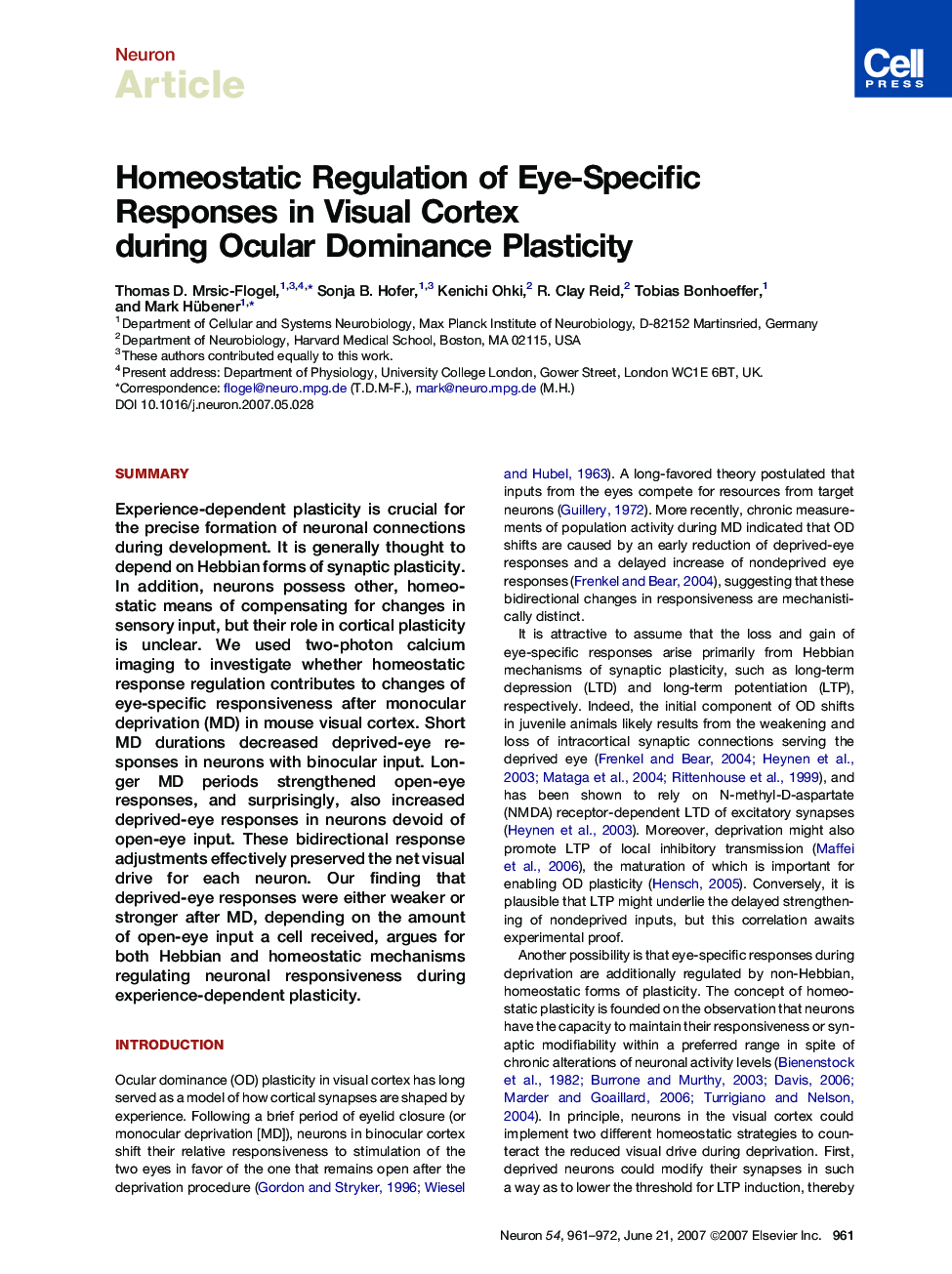| Article ID | Journal | Published Year | Pages | File Type |
|---|---|---|---|---|
| 4323222 | Neuron | 2007 | 12 Pages |
SummaryExperience-dependent plasticity is crucial for the precise formation of neuronal connections during development. It is generally thought to depend on Hebbian forms of synaptic plasticity. In addition, neurons possess other, homeostatic means of compensating for changes in sensory input, but their role in cortical plasticity is unclear. We used two-photon calcium imaging to investigate whether homeostatic response regulation contributes to changes of eye-specific responsiveness after monocular deprivation (MD) in mouse visual cortex. Short MD durations decreased deprived-eye responses in neurons with binocular input. Longer MD periods strengthened open-eye responses, and surprisingly, also increased deprived-eye responses in neurons devoid of open-eye input. These bidirectional response adjustments effectively preserved the net visual drive for each neuron. Our finding that deprived-eye responses were either weaker or stronger after MD, depending on the amount of open-eye input a cell received, argues for both Hebbian and homeostatic mechanisms regulating neuronal responsiveness during experience-dependent plasticity.
